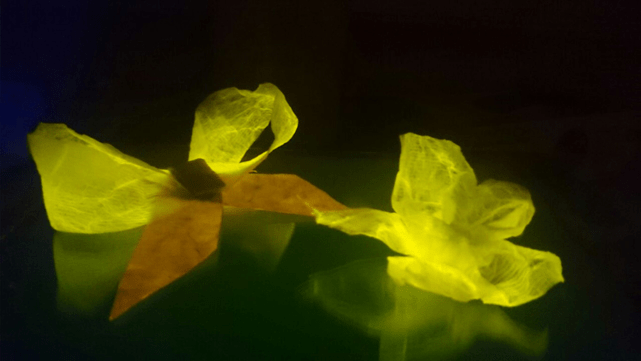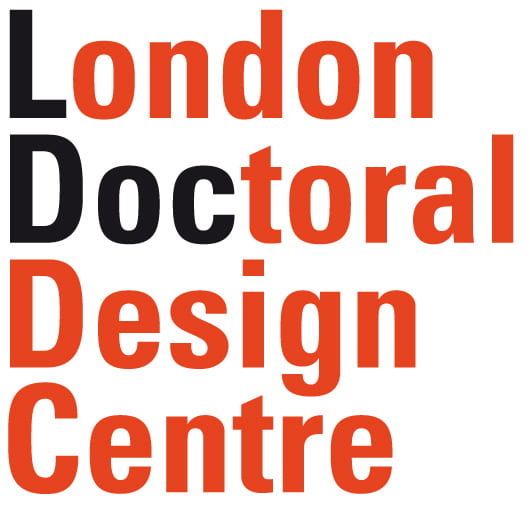
Victoria Geaney ‘Grown’ – a collection of bacterial cellulose painted with Green Fluorescent Protein (naturally glows in the dark, extracted from jellyfish) accessories for Imperial College iGEM 2014. Image courtesy of Benjamin Reeve, Postgraduate Researcher at the Centre for Synthetic Biology and Innovation, Imperial College London
Growing Wearable Technology: Can Collaborative Fashion, Art, Science and Technology (FAST) Practice be Read and Understood as Metamodernism and Biodesign?
Can the new wave of wearable technology companies with an environmental conscience; artists and designers collaborating with scientists and technologists; and the growth of Synthetic Biology and Biodesign – areas that could be viewed as designing nature; be described as and therefore define the Metamodern era?
This research and studio-based MPhil will investigate the relationship between Metamodernity and Biodesign as understood through the work of Western-European and American based practitioners, culminating in a thesis and the production of a collection of grown, wearable technology.
‘The biggest innovations of the twenty-first century will be the intersection of biology and technology. A new era is beginning’
– Steve Jobs (Isaacson, 2011).
Currently there are an emergence of creatives forming allegiances with scientists, technologists and engineers. These collaborations, together with the zeitgeist for fashion futures, whether wearable, 3D printed, light-up, and designing nature itself within Synthetic Biology and Biodesign, appear to be forming a new cultural movement. Here, multidisciplinary work is seen as science, engineering and technology collide with fashion and textiles to produce work preoccupied with the future and our needs as a digital and green generation.
This combined practice and theory based MPhil is informed by on-going discussions with Synthetic Biologists at Imperial College into the following areas: can environmental, programmable Wearable Technology be cultivated or grown in a laboratory? Are there environmental methods to replicate Wearable Technology and can these alternatives be key competitors within the textile and fashion markets? Ultimately, what are the social, environmental, global and political implications of Biodesign within contemporary visual and cultural history and Metamodernism?
Material research will focus on the emergence of Biodesign and the ability of Synthetic Biology to work with Fashion and Art in designing nature on a molecular scale. The MPhil examines future fabrics, sustainability and how wearable technology can be produced naturally and environmentally within our cultural dominant
